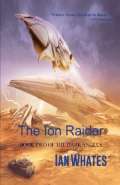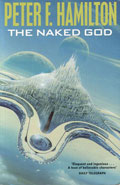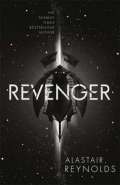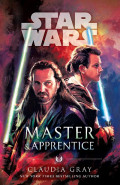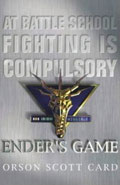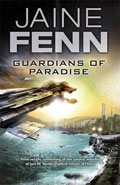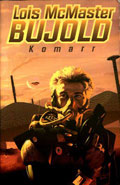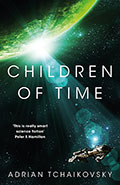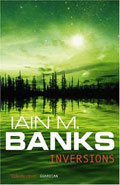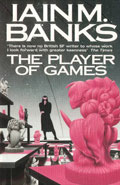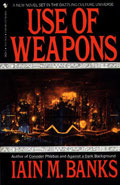Resilient
By Allen Stroud
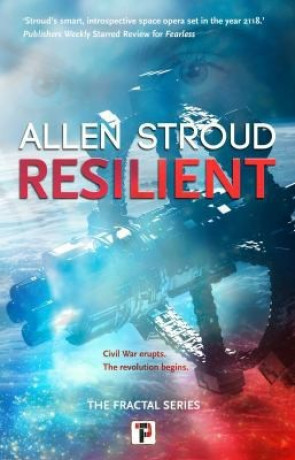
- Resilient
-
Author: Allen Stroud
- Series: The Fractal Series
-
Publisher: Flame Tree Press
- ISBN: 978-1787587144
- Published: April 2022
- Pages: 384
- Format reviewed: Paperback
- Review date: 09/09/2024
- Language: English
Resilient is the second book in Allen Stroud's Fractal series, picking up right after the events of Fearless. As such it's impossible not to provide some minor spoilers about Fearless while talking about Resilient. I will however try my best to give away as little as possible, and anything mentioned here can be read on the back on the Resilient book / online blurb.
It's 2118 and humanity is in a golden age of space exploration, with government and private corporation partnerships working together to populate the solar system, unravel it's mysteries and mine it's resources. Humanity has colonised the Moon, Mars, Ceres and Europa. That peaceful co-operation and economic balance is shattered however when a terrorist attack destroys one of the Earths main sources of power, a huge solar array in Atacama, Chile. Meanwhile on Phobos Station, orbiting Mars, Doctor Emerson Drake is responding to an emergency assist call to help a shuttle full of wounded miners. It's a trap though and Phobos Station is soon over-run by insurgents, with Drake trapped and fighting for his life.
Out in deep space on board the captured ship Gallowglass are the survivors of the Khidr, who must choose between following the path set out by their previous adversaries in an unfamiliar and broken down ship, or stay to find out how the strange gravity anomaly swallowed up the remains of their vessel. Back on Earth, in an undisclosed location, Natalie Holder finally has an opportunity to break free from her confinement, where she has been experimented on multiple times. Her consciousness is transmitted to Phobos Station, just as the insurgents take over the facility, led by another Rocher clone.
Resilient really does pick up right where we left the intrepid crew of the ill-fated Khidr, but with a much wider scope following the terrorist events on Earth and Phobos Station, the results of which have the potential to impact the socio-political and socio-economic activity of the whole solar system. The book doesn't coddle you like some second books in a series do, you are expected to do your homework here (and by that I mean read Fearless first) if you want to know what happened up to the beginning of this book. Is it required? no, Resilient is still a great story that delivers without you knowing anything else. Is it recommended? Absolutely, Fearless is a fantastic read anyway and you'll thank me for it, not just for filling in the blanks early on (who is that devilish Rocher clone and just what are we talking about when we mention gravity anomalies) but also just because it's a great book about space exploration.
Where Fearless presented the potential realities of life on board a thin, fragile container hurtling through the cold, hard, deadly vacuum of space, Resilient is all of that but also Die Hard on a space station. Yep, you heard that right, Die Hard on a space station. Which in my mind makes this a bit of a Christmas book too, although it can be equally enjoyed all year round. But it's a lot more than that. In Fearless, the author created a vision of how humanity might really exist on a ship flying around the solar system. It's considered writing and he really did put a huge amount of work into imagining what space travel in the 22nd Century might actually be like, and he bound the story in this realistic vision. In Resilient though he goes way beyond just space flight, and provides a potential history of the next 100 years, through breaks between chapters that explore past events, and through the unfolding story of Die Hard on a space station. Again the author must have put a huge amount of time and effort here, it all feels so feasible and likely. Even as I write this, I'm reading about how a corporate company is being tasked to bring government (NASA) astronauts back from the international space station, because they are stuck there otherwise. It was of course a different corporate company that took those astronauts up there in the first place, before the ship malfunctioned, which I guess also highlights the dangers of space flight. It's this sort of co-operation that seems inevitable and imperative if we are ever going to get off this rock and begin to explore our surroundings much further than the Moon.
The author continues to write the story in the first person, and again we get to see the POV from a number of existing and new characters. Each of these individuals are compelling, given enough room for the reader to learn and explore their character and motivations. They each react in relatable and reasonable ways to their own dynamic and fluid situations. In other words the author throws a huge amount of s#*t their way, continuously. You can't help but feel sorry for them, the boor blighters. Seriously the book does not let up from start to finish, yet at the same time manages a good deal of world-building and reflection on a number of big themes.
I loved the idea of Natalie Holder, who is killed early on in the story but then re-appears in a replaced body, much to her dismay. She is then at the whim of the corporation "who captured her soul" and is used as assassin, spy and anything else her captures deem appropriate. The result is a reasoned and careful exploration of mental abuse and modern slavery, which on it's own, makes the book compelling reading. I also liked how Drake, one of the two protagonists who are trying to survive on the station, is portrayed. He's not some gung-ho hero or veteran police detective, but a Doctor and otherwise average Jo, who is out of his depth and just trying to make the best of a bad situation. Holder is a bit of a hero though, but then again she is also in a body that isn't theirs, and trying to figure it all out while staying alive. They make a good team. Then there is the story around the anomalies, exploring the unknown, the unfathomable, while trying to make some sense of what occurred on the Khidr, and of course what happened to Duggins.
Themes include the development of AI - And by AI I don't mean what is labelled as such presently, which is just machine learning in a funny hat, but real levels of artificial intelligence. Then there is that still ephemeral thing that is human consciousness, along with the continued exploration of the challenges presented for fragile meat sacks who insist they want to live outside of Earth's cosy embrace. You've also got the trial of government and corporations being uneasy bedfellows and how economies of scale mean inevitably that as a society we can easily lose the individual, elected personal decision making, instead being replaced with something faceless and entirely bureaucratic.
The disparate plots are woven together like a conductor orchestrating a symphony, politics, espionage, drama and survival move around the wonderful juxtaposition between the exploration of deep space and the claustrophobia of Die Hard (on a space station). The result is unforgiving, clever, captivating science fiction that does what few sequels fail to achieve, improve on and continue the story in new directions. Unmissable.
Written on 9th September 2024 by Ant .
